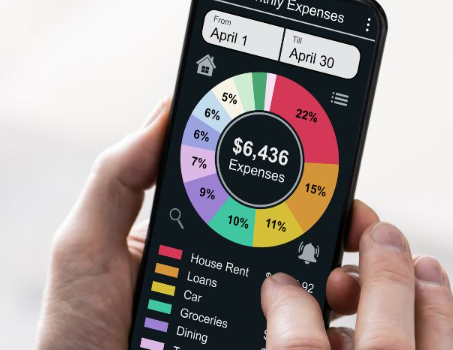
If you’re looking to improve your financial management, you’ve likely come across budgeting apps. These tools are advertised as life-saving solutions for tracking expenses and managing money, but do they really live up to the hype? Before downloading one, it’s important to weigh the advantages and drawbacks. Let’s dive into the pros and cons of using budgeting apps for Canadians.
Pros of Budgeting Apps
Budgeting apps are designed to simplify money management and offer various benefits that can make it easier to stick to your financial goals. Here are some of the main advantages:
1. Easy-to-Use Interface
Good budgeting apps are designed with user-friendliness in mind. A well-designed app provides clear categories for your spending and offers a simple way to visualize where your money goes. Many apps send notifications when you’re nearing your spending limits, helping you avoid overspending. With this real-time feedback, managing your finances becomes more intuitive and proactive.
2. Saves Time and Effort
By connecting your bank accounts and credit cards to the app, you eliminate the need to manually enter transactions. The app does the heavy lifting for you by automatically updating your balances and calculating totals, making it much easier to stay on top of your budget. This automation helps reduce the time and effort needed to track your spending, giving you more time to focus on other important tasks.
3. Makes Saving Engaging
While budgeting can seem tedious, some apps turn it into an interactive experience. With features like progress bars, reminders, and even rewards for meeting goals, managing your money can feel more like playing a game. By incorporating a fun, engaging element, these apps help motivate you to stick with your financial goals and stay on track with your spending.
Cons of Budgeting Apps
While budgeting apps offer several benefits, there are also some potential downsides to consider. Here are a few of the most common drawbacks:
1. Not One-Size-Fits-All
Most budgeting apps are designed with a broad audience in mind, meaning they may not fit your specific financial situation. For example, if you’re paid weekly but the app only accommodates biweekly or monthly pay cycles, you’ll need to adapt your budget accordingly. These limitations can make it harder to tailor your budget to your unique circumstances, potentially causing more frustration than help.
2. Overwhelming Features
Some modern budgeting apps go beyond simple budgeting, offering additional features like investment tools, credit cards, or banking services. While these extras may seem helpful, they can quickly become distracting and even overwhelming. If you’re focused on tracking your spending, the temptation to explore other features could divert your attention from your main financial goals. For those who prefer a straightforward budgeting tool, these added features might complicate the process.
3. Security and Privacy Risks
To get the most out of a budgeting app, you’ll likely need to link your bank accounts, credit cards, and other financial details. However, this introduces potential security risks. If the app is hacked, your sensitive financial information could be exposed. Even if the app is secure, sharing your passwords and financial data with third-party services raises privacy concerns. It’s important to read the fine print to understand how your data is collected and used. Until more secure options are available, you should be cautious when deciding which apps to trust with your financial information.
Looking Ahead: The Future of Budgeting Apps in Canada
Canada is moving toward an open banking framework, which will make it easier for Canadians to securely share their financial data with apps and services. This system aims to reduce the need to provide sensitive login information, improving both privacy and protection. While this development is expected to improve the security of budgeting apps, it’s still essential to be vigilant about the permissions you grant and ensure you understand the potential risks before linking your accounts.
Conclusion
Budgeting apps can be a helpful tool for managing your finances, but they come with both advantages and risks. They can save you time, help track your spending, and even make saving fun, but they also have limitations and potential security concerns. Before choosing an app, take the time to assess your specific needs, consider the features that matter most to you, and ensure you understand the privacy implications. By doing so, you can make an informed decision and find the app that best suits your financial goals.









